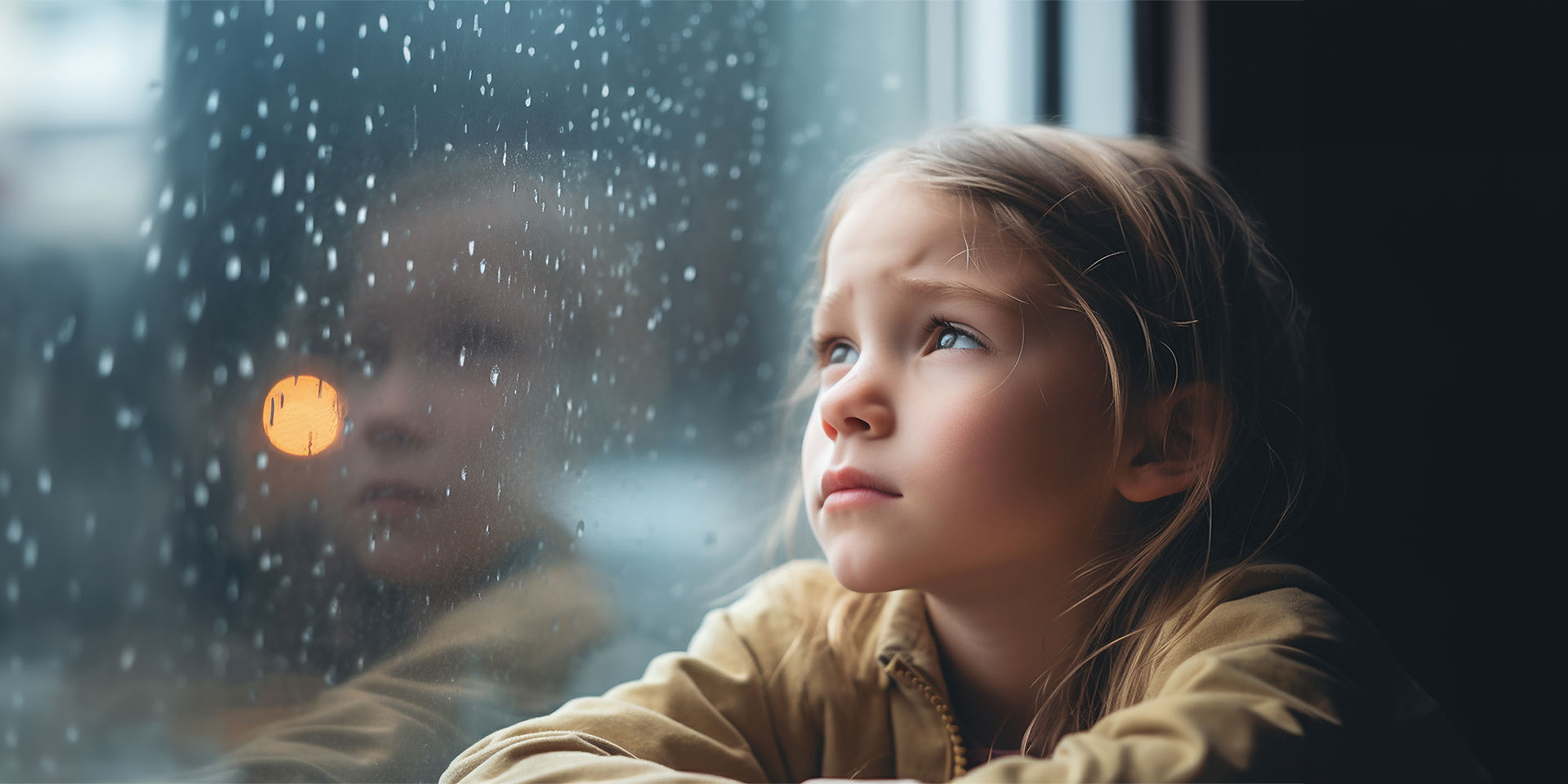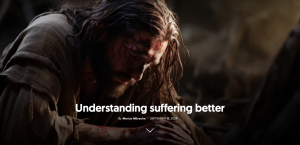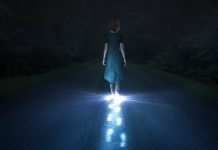I was in the park with my little girl when a heavy summer shower began, driving us home. My little girl wanted us to stop for a moment in the stairwell of our apartment building to watch the rain. After standing there for a few seconds, I heard her whisper, “God, You’re getting soaked.”
Those familiar with the Bible will instinctively think of the words spoken by Jesus: “Truly I tell you, unless you change and become like little children, you will never enter the kingdom of heaven. Therefore, whoever takes the lowly position of this child is the greatest in the kingdom of heaven” (Matthew 18:3-4). I think of these verses every time my little girl, through a gesture or an innocent word, makes me long for a purity that she shows me exists. When Jesus says, “Unless you become like little children,” or “Whoever takes the lowly position of this child,” He implicitly affirms that returning to this humble innocence is possible.
The innocent
Can you imagine an adult who, when faced with an inconvenience, does not worry about their ruined plans, but instead prioritises the welfare of God? More simply: What kind of heart would care first about God?
When I look at my own heart, I feel consumed by darkness. Around the time of the story about my daughter, my Facebook newsfeed was full of pictures of schoolgirls who had been killed by the severe flooding in central Texas. One image that particularly struck me was that of two sisters, aged 11 and 13. According to a local news headline, they were found about 30 kilometres away from their home, which had been swept away by the floodwaters in the middle of the night. They were found with their hands clasped together in prayer. They had been sleeping with their grandparents, who had come from out of town, at the home of neighbours who were accommodating them while they were on holiday. The girls’ father, who had stayed home in a higher part of the neighbourhood, woke up in the middle of the night to check on them. At 3:30 a.m., he was shocked to find that the water level was rising by half a metre per minute. He broke a window to escape the house and borrowed a kayak from his neighbours to transport his family to safety. However, by the time he reached the house where his family was, the water level was too high to reach them. In addition to the two sisters, Brooke and Blair Harber, a preliminary toll announced the deaths of 34 other children, many of whom were participants in a Christian summer camp on the banks of the Guadalupe River.
Shortly afterwards, I came across another shocking news story about a six-year-old boy who helplessly witnessed his mother being kidnapped, and who then saw her murdered a few months later. There are many inconsistencies in the media reports about the case of the 23-year-old woman who was harassed and killed with extreme brutality. Some claim that the police failed in their duty. Despite the fact that the perpetrator had broken the monitoring bracelet he had been fitted with the previous year, after the woman had obtained a restraining order against him, the authorities were completely ineffective in their search. Others claim that the woman had only asked the police for protection at night, and that she and five others knew where the man was hiding. Whatever the truth, a six-year-old child saw everything. This is similar to what happened to the children of the woman in Prahova, who was also killed with an axe by her ex-boyfriend. Or the three-year-old girl whose pregnant mother was shot in the street by her ex-boyfriend in a residential neighbourhood.
What kind of world is this?
It is impossible not to feel your heart ache at the blatant injustice these children have experienced. Most of all, it’s unimaginable not to ask yourself: What kind of world is this that inflicts such pain on the best of us? The more you struggle to make sense of it, however, the more ridiculous your thoughts become. Clashes with pain force you to search for meaning, to discover an order to things. However, the closer you think you are to solving the equation of suffering, the further you are from the reality that refuses to be explained by mathematics.
Some people live comfortably within the confines of simplistic explanations, forgetting how many different situations there are in life beyond them. Others, perhaps the majority, engage in a daily struggle with each new pain. They have no one to understand their pain or accompany them through the complexities of life. Taken on like this, it is a doomed struggle and, for most, synonymous with initiation into life. As we mature, each capitulation to the ugliness of this world extinguishes the light in our souls, and the sparkle in our eyes—enlarged by amazement at existence—begins to dim.
Why does God ask us to reverse this process? On what basis should we be like children, with soft hearts and eyes eager to grasp the incomprehensible? How can we keep our souls tender when life’s harsh experiences harden our hearts? Everyone who seeks an answer to these questions is blessed by the process of seeking.
Christ encourages what the hearts that tremble at the words of a child already feel unequivocally: a longing for something more. We feel the limitations of our maturity; we see through the pretence of our intellectual choreography and the absurdity of our values, which have obscured what truly matters: being seen for who we truly are and being loved anyway. And that is a good thing. Contrary to the popular advice to appear indifferent, nostalgia for a return to innocence is a sign of spiritual health.
So when Jesus says, “Unless you become like little children,” we understand: “You must become like little children.” Would He have given a commandment if it were impossible to fulfil? Of course, we cannot keep any of the Ten Commandments in their full spirit by our own strength, but they tell us that God intended other rules to govern our world. If that was His intention, it is reasonable to believe that He will help us fulfil His plan.
But why does our soul resonate with the prospect of a world governed by laws that are invisible to the naked eye? If we did not believe that Good—the supreme Good—is possible, evil would not affect us. But precisely because deep down we believe it is possible, we desire it and are outraged by its absence. Our outrage is akin to complaining about a breach of our existential contract. Why else would we think it unfair for good people to suffer? Why would that be unacceptable? By what standards? Who has ingrained these standards so deeply that their violation causes us emotional and cognitive turmoil?
In “Mere Christianity”, C S Lewis wrote, “If the whole universe has no meaning, we should never have found out that it has no meaning: just as, if there were no light in the universe and therefore no creatures with eyes, we should never know it was dark. Dark would be without meaning.”
If the Supreme Good did not exist, we would not miss it. If we had no concept of justice, we might feel saddened by the suffering of children, but we would not be outraged by it. However, we do miss the Good, and we are outraged by unjust suffering. In this context, can we make room for God? And if so, how?
God in the rain
“God, You’re getting soaked…” My little girl saw that God was affected by the same thing that was affecting her: the rain that had driven us out of the park. She hasn’t experienced enough trivial yet repeated and recurring pain to be tempted to blame those closest to her. She hasn’t experienced any emotional trauma that would confuse her moral compass and make her doubt the God of her parents. In her young mind, her suffering and God’s suffering are not opposites. She does not suffer because God might be indifferent to her. Rather, they both suffer—God more than she does—because He did not take shelter in the stairwell.
In the great Christian narrative, God suffers alongside His creation. Although He is separate from it, He does not flee from the consequences of its destructive actions, but remains on the battlefield where it is difficult to distinguish friend from foe.
His love is as real as the struggle, and He does not abandon those He loves, no matter how wounded they may be in battle. The Christian God is not afraid of rain because He created the sun and can restore its brightness at any moment. A beautiful song by Michael Card says that “human tears are older than the rain.” “God, You’re getting soaked…” my little girl said. And in my heart I whispered: “Weren’t our tears the first to soak You?”




















